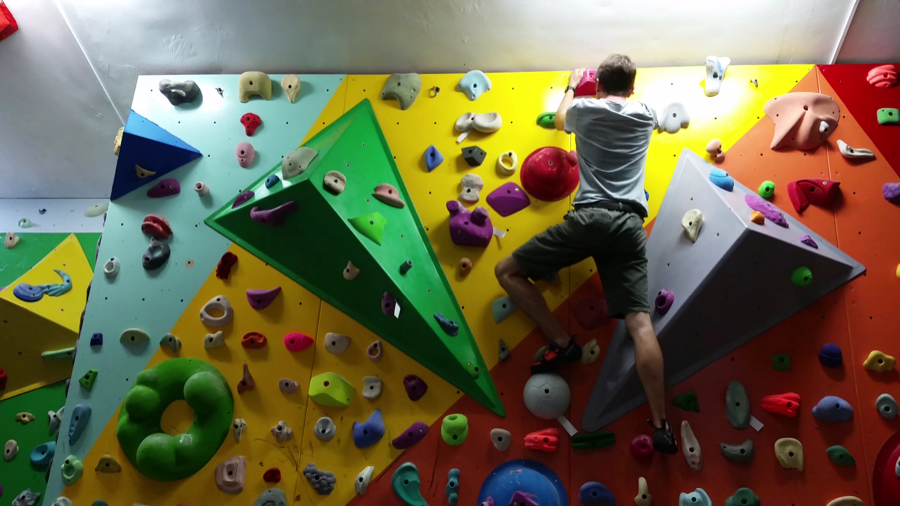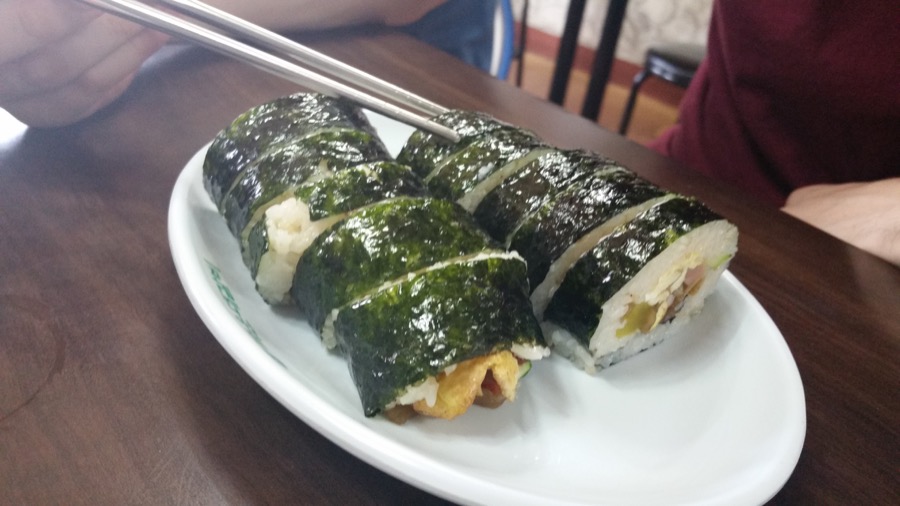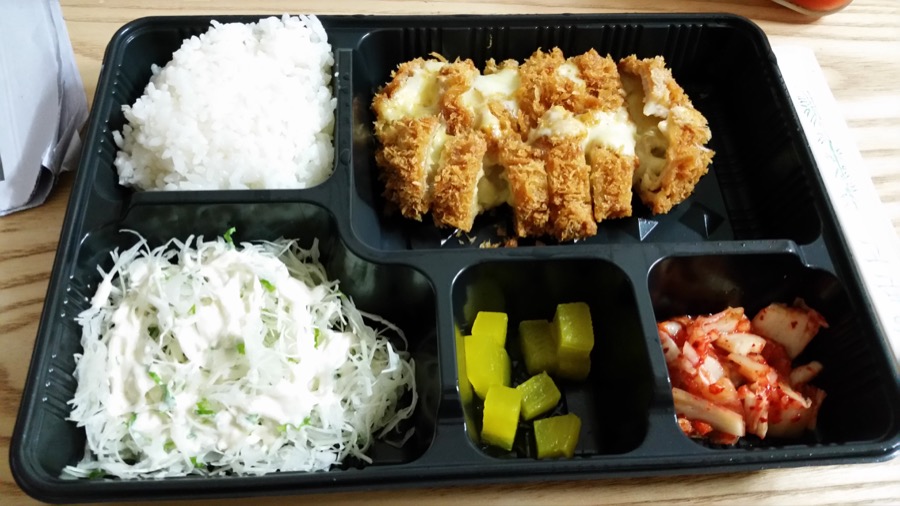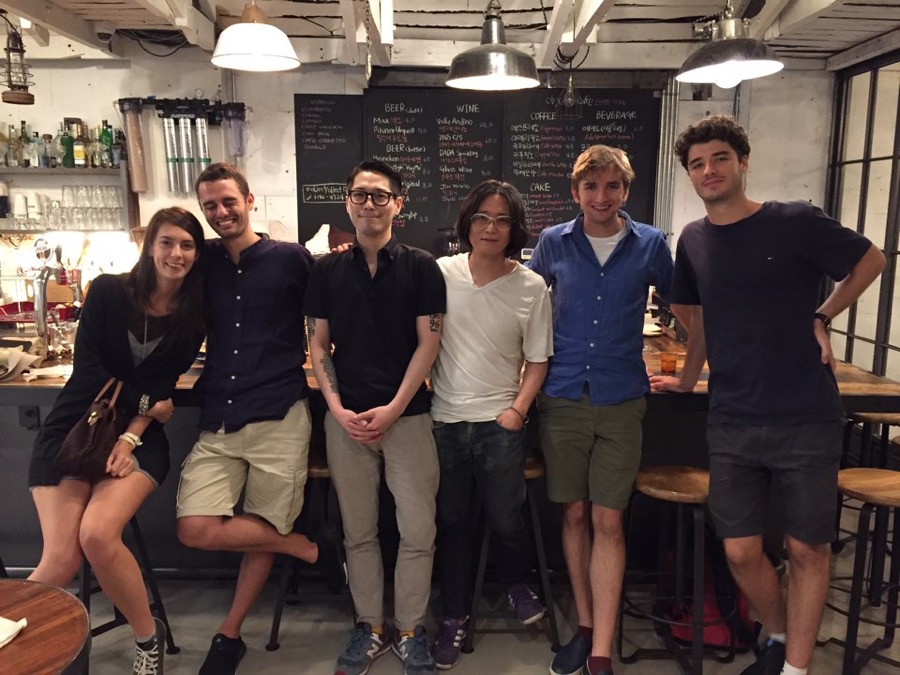A day in the life of an interloper in Seoul
Every now and then, in a cafe, bar or shop, a friendly-looking worker will bring you something you didn’t order, and mention something about “soh-biss-eu”. What they’re actually saying is “service”, which is Korean for “It’s free. Just for you. Nobody else. No, this isn’t a promotion.”
Service accurately represents the general attitude I’ve received from Koreans since I got here: generosity. As I write this sentence, I’m on my second glass of red wine in “Object Café” in the Hongdae area of Seoul, and I’ve only paid for one of them. I believe I earned it for speaking Korean to the other barflies. One of whom, by the way, called me “handsome”. Now that’s generous.
This sort of thing happens to me every other day in Seoul. The service thing, I mean. Not the handsome thing. Wear a smile on your face, look people in the eye when you speak to them and try your darndest to speak their language and they’ll move mountains to make you feel comfortable.
Wake up and smell the coffee
You don’t normally go to cafés to get free wine, though. The reason I go is usually pretty straightforward: air conditioning. Late July to mid August turns Korea into a sauna, so café trips are inevitable and frequent.
My first activity each morning is Korean class (it’s going well, by the way) at the Ganada (가나다) Korean Academy. After three hours there, I head to the nearest café, Café Moin (also in Hongdae). By now, they’ve gotten to know me a little bit and have decided that I need to learn how to say “big size” when referring to the amount of ice coffee I’d like to drink. I still forget, every single time, so I just say, “big-uh sy-juh” (say it out loud and you’ll see what it means).

Anyway, I sit down to do my homework, sometimes surrounded by other language students. Often they’re Koreans learning how to speak French, aided by a French-speaking expat.
Korea seems to have a curious obsession with France. Many of the most ubiquitous café chains have French names, and serve snacks based on French pastries (usually with a Korean twist, such as red bean paste filling). Paris Baguette, Tous Les Jours and France Baguette are the three most French-sounding ones, but you’ll see French words all over the place.
Roll With It
Another important part of my routine is the daily Oasis listening session, which normally happens after I’ve finished my homework.
Your average Korean shop, café, restaurant or bouldering gym will play three songs from (What’s the Story) Morning Glory? in immediate succession. 100% of the time this mini-playlist will include Wonderwall, and then usually Don’t Look Back in Anger and She’s Electric. Sometimes, to mix it up, Roll With It makes an appearance. Sometimes twice.
This normally takes place after homework because that’s when I visit my nearest bouldering gym, Astroman. Somehow I managed to buy a month-long membership there which allows me to have my own locker, with my name written on it in Hangul (Korean script).

There aren’t many other westerners who visit Astroman, but this means if I want any kind of interaction while I’m there I’m forced to step outside of my comfort zone and speak to a Korean person in their own language, which can be pretty terrifying. I know a little bit of Korean, so it’s scary because I might give the inaccurate impression that I can speak it quite well. I have to try though: why else would I learn except in order to speak to Koreans?
Have you eaten?
I should mention lunch. Something you learn pretty quickly after landing in Korea is that food is very important to people here. I’m not talking the normal, “I need it to survive” kind of important; this is a whole other level. Not only do Koreans eat way more food in a single meal than most British people, there’s an actual greeting in Korea which translates to “Have you eaten?”
My favourite lunchtime food, which I do genuinely eat almost every day, is Kimbap. The word “Kimbap” is a combination of the word for “seaweed” (kim) and “rice” (bap). If that sounds like a sushi roll to you, then you’re not far off - but it’s not a sushi roll. First off, kimbap is usually bigger; about 5x larger than a sushi roll. Secondly, the non-rice kimbap fillings vary wildly. Ham, vegetables, pork, spam, egg… anything goes, really. This is why it’s often called the “Korean sandwich”.

It’s also very affordable. The cheapest kimbap I’ve eaten cost me 1,500 won – about 80p – and it was freshly made. The most expensive one was 4,000 won, about £2.40. Plus, at a kimbap restaurant you’ll normally get side dishes for free, such as kimchi, pickled radish and soup. When I get kimbap, I never leave hungry and I never leave poor.
Next, I either spend my afternoon recording a new video about Korea for YouTube, blogging, doing a little bit of sightseeing, or – my new favourite activity – drumming.
Seoul is full of music practice rooms, usually in basements or on upper floors of buildings. Especially in Hongdae, live music is a really big deal both on the streets (buskers are common, unlicenced, legal and generally high-quality) and in live music clubs.
They’re pretty simple to use: walk in, tell them what you wanna play and for how long (“1 hour of drumming please”) and they’ll charge you a reasonable price. I spend about 5,000 won (£2.70) each time to play the drums for an hour: enough time to follow a few YouTube tutorials or play along to Don’t Look Back in Anger. I’m holding out for a local band to hear me through the door one day and invite me to busk with them.
Still hungry?

Eventually, dinner rolls around. My flatmate and friend from back home, Rich, is a great dinner partner. We generally don’t eat alone, but we’ve each made a few other friends here so sometimes we split up. Believe it or not, Korean dinners don’t consist solely of self-cooked BBQ food, but about a third of the time that’s what I opt for.
One dinnertime meal I’ve really enjoyed is Donkatsu, an adaptation of the Japanese Katsu but with a lot more crunch to it. Korean pizza is also a real treat, rarely recogniseable to your average westerner and usually at least twice as calorific as a genuine Italian pizza. Mexican food is also popular, as are hamburgers, hot dogs and fried chicken.
The night is young. More coffee?
To end my day, either I’ll find something sociable to do or hunker down–as I did the evening I started writing this blog post–in a convenient, late-night coffee shop with reliable wifi. I order a tasty-sounding drink such as Mango Yoghurt Blend and get to work on one of my side projects, such as Interfake, Forkability, Pub Crawl: London or this very blog.
Despite my best efforts to be as boring as possible, that “hunkering down” sometimes turns into something sociable. Remember: if you wear a smile on your face, look people in the eye and try to speak their language they’ll move mountains to make you feel comfortable. That’s exactly what happened that evening at Object Café. You see, I had to pause while writing this article in order to pay more attention to the conversations happening around me and pick it up in the morning.
What began as a quiet evening of writing turned into an evening of laughter, music and cultural exchange. Fun, memorable and unexpected. Routine be damned!

“Average”
Friends and family back home often ask me, “Dan, what’s an average day for you in Korea?” It may sound a little far-fetched that I pack all this stuff into a single day when back home an average day consisted only of work, food and exercise.
It’s no lie, though. When you’re unemployed, on the road, without many responsibilities and without much direction, more things just seem to happen whether you plan for them or not. The scope of daily activities widens. Just like so much in life, it’s not the amazing and wonderful experience that you expected: it’s a totally different, more amazing and wonderful experience the likes of which you couldn’t even conceive.
This article was read & critiqued by Elli, Danny, Tom, Karen and my dear ma. I thank you all for your time, patience and suggestions!